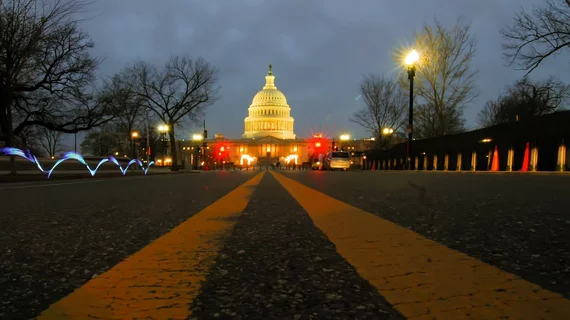American College of Radiology issues ‘call to action’ on key federal funding issue
The American College of Radiology recently issued a “call to action” on a key federal funding issue impacting the specialty.
ACR noted Sept. 12 that Congress is returning from its August recess, with one of the “most critical” considerations pertaining to government funding for fiscal 2025. Lawmakers have less than two weeks, until Sept. 30, to pass a spending bill and avert a shutdown.
The college and other medical societies are pushing for a $2 billion increase in funding for the National Institutes of Health next year. This would help to cover a range of radiology and imaging research spanning diagnostics, treatment and therapeutics.
“It is essential Congress demonstrates its commitment to biomedical research and discovery by providing the highest possible funding levels for federal research agencies and programs,” ACR said in its call to action. “Medical progress, which is dependent on this funding, could be severely hampered and the development of groundbreaking diagnostics and therapies will be delayed, impacting patient outcomes.”
The American College of Radiology also was among over 200 organizations and individuals recently writing to leaders in the U.S. Senate, expressing thanks for proposed plans to increase NIH funding.
“We are appreciative for your extraordinary individual and joint commitment to preventing, treating, and curing diseases and conditions that rob the American people, and populations across the globe, of health, independence, time, and loved ones,” ACR, GO2 for Lung Cancer, AdvaMed, the American Association for Cancer Research and others wrote on Sept. 3.

